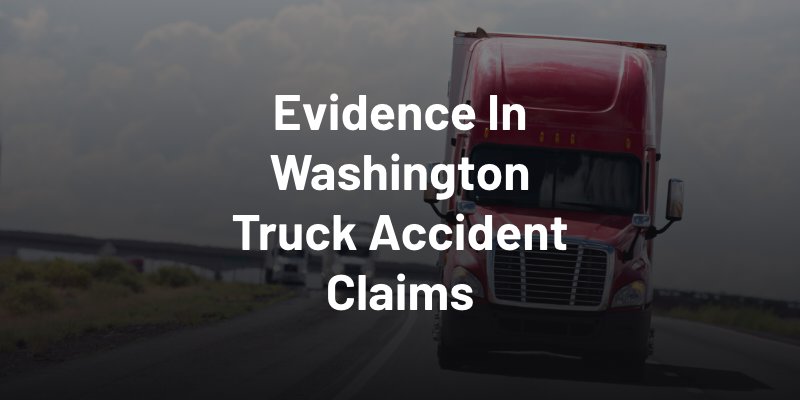
Accidents involving large commercial trucks weighing as much as 80,000 pounds have the most devastating consequences to vulnerable motorists, yet they are also the most complex accident claims, commonly resulting in delays, disputes, and denials, with multiple entities pointing fingers at other parties. Successfully recovering damages like medical expenses, lost wages, and compensation for pain and suffering in a Washington truck accident claim takes substantial evidence to make a compelling case to present to the appropriate insurance company. If you were involved in an accident, please reach out to a truck accident attorney in Everett as soon as possible for legal guidance.
Proving Liability in a Truck Accident Claim in Washington
Washington has a fault-based insurance system requiring accident victims to prove the at-fault party’s liability, including in truck accident claims. A successful claim requires determining the cause of the accident and correctly identifying the liable party. Accident victims become the plaintiff in the case and have the responsibility to prove liability through a preponderance of the evidence. The evidence must demonstrate that the at-fault party had a legal duty of reasonable care to prevent injuries, they breached this duty through negligence, and their breach of duty directly caused an injury with substantial damages. Evidence used to prove liability for a truck accident in Washington includes:
- The police report
- Any available photos, videos, or evidence documented at the accident scene
- Eyewitness testimony
- The truck driver’s hour logbook
- The truck’s maintenance records
- The “black box” recording device that stores driving information in the moments before and during the accident (available in most newer trucks)
- The trucking company’s hiring, training, and employee monitoring records
- Records of recent delivery times and schedule
- Freight loading records
Both sides typically investigate the accident but the insurance company’s goal is to protect their profits while a truck accident attorney’s goal is to maximize the compensation available to an injury victim by gathering ample evidence of liability to make a compelling case.
Evidence Proving Damages In a Washington Truck Accident Claim
All accident compensation claims—including truck accident claims—require proof of a victim’s “damages,” or the physical and financial consequences of the accident. Common Damages include property damage, past and future medical expenses, lost income, and compensation for pain and suffering. The evidence used to support these claims in a truck accident case includes the following:
- Vehicle repair or replacement estimates or receipts
- The injury victim’s medical report
- Medical bills
- Receipts for out-of-pocket expenses
- Employer statements detailing missed workdays and proof of normal income
- Medical expert testimony on the amount and duration of pain for the type of injury and showing the impacts of the injury on the accident victim’s ability to work and manage daily routines
Evidence may also show that other damages apply in individual cases, such as compensation for disfigurement, loss of vision or hearing, traumatic limb loss, PTSD, or other emotional damages.
Do I Have to Go to Court to Show Evidence In a Truck Accident Case in Washington?
When an attorney thoroughly investigates and documents ample evidence of liability and damages in a truck accident case, they can make a compelling claim to the liable party’s insurance company. Most claims end with a settlement from the insurance company. Only about five percent of cases require following through with a lawsuit in court if the insurance company undervalues or wrongfully denies the claim.
Call Wells Trumbull So We Can Help You Document Evidence In Your Washington Truck Accident Claim
No one should have to take on powerful trucking companies and their insurance companies alone. Reach out to the compassionate Everett injury attorneys at Wells Trumbull today so we can begin action on your claim with a skilled investigation to present a case for maximum compensation. Contact us today for a free consultation.